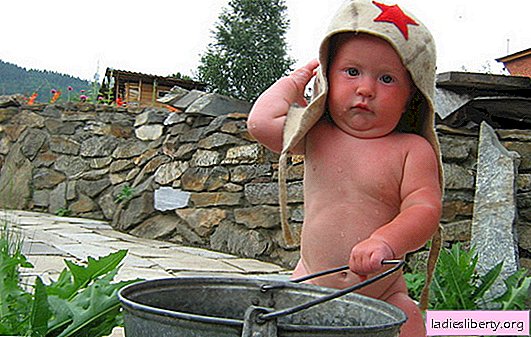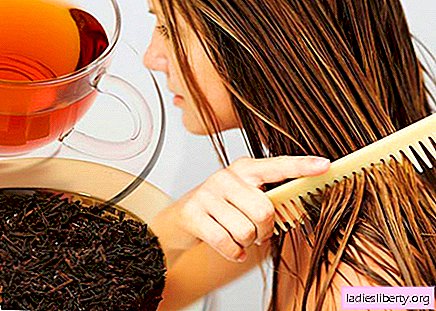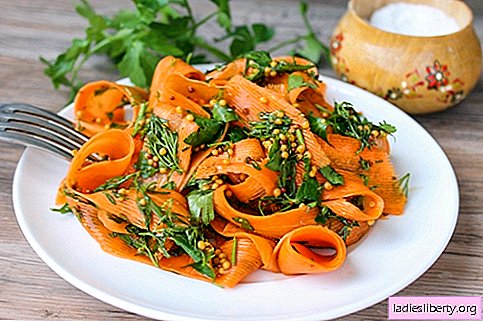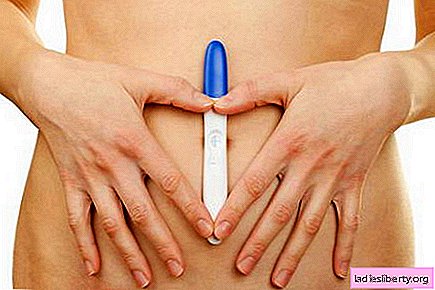
Far from every disease, the diet has such a significant and rapid effect as on pancreatitis. Thanks to a well-planned menu, pancreatitis can be relegated to the background of everyday life, but this does not mean that nothing will please the table.
Features of a therapeutic diet for pancreatitis
The pancreas is one of the most important organs, in particular, it produces insulin and digestive enzymes. The main bad thing that can happen to her is pancreatitis, that is, an inflammatory disease, by its specific characteristics, divided into two main forms - acute and chronic pancreatitis.
In both cases, special dietary nutrition is a prerequisite for improving the patient's condition, aimed at preventing relapse and normalizing within the available functions of the pancreas.
It is important to note that exclusively independent diet planning for pancreatitis is the wrong step, which can lead to the most sad consequences.
A disease of this severity requires specialist advice that can support the patient in developing a nutrition plan according to his individual condition.
However, in general, the main rules of a therapeutic diet for pancreatitis can be reduced to the following:
• frequent meals (5-8 times a day) are important both after exacerbation, and during remission;
• between meals it is impossible to take long breaks, it is also unacceptable to tolerate a pronounced feeling of hunger;
• portions of dishes should be small, if not enough - it’s better to have a snack in half an hour;
• all food and drinks should not be as cold as ice, nor scorching hot - the temperature limits on both sides should be within reasonable limits;
• the composition and consistency of all food and drinks should be such as to exclude the possibility of chemical or mechanical harmful effects on the stomach, and therefore on the pancreas;
• in the diet, it is necessary to balance with the predominance of proteins (animal origin) and the reduction (without harm to metabolism) of carbohydrates and fats.
Differences in the therapeutic diet for pancreatitis
At the beginning of the course of acute pancreatitis or with an exacerbation of chronic, there is no nutrition - the patient is shown starvation with drinking only water, lasting 1-3 days.
After this, it is necessary as soon as possible to ensure a normal diet, at first - all low-calorie, containing a minimum of nutrients.
This can be crackers, a rosehip broth, vegetable cream soup, omelet. During this period of the disease, all food must strictly have a semi-liquid, uniform consistency.
Also, sweets should be completely ruled out.
But in fact (over the course of several weeks), a transition to nutrition is gradually being carried out, which must be observed in chronic pancreatitis.
With this form of the disease for many months you can not experience pain and other symptoms of worsening, but still - with the menu you need constant caution.
Everything potentially dangerous (for example, coarse fiber, salty) should be present on the table minimally. Mashed food is very desirable, but it is not necessary that it fill the entire menu.
Allowed and forbidden food on a therapeutic diet for pancreatitis
The menu for pancreatitis is strict, but with its chronic form (during the period of remission), the choice of allowed products - quite wide and with good recipes at hand - will be delicious every day.
For example, you can find diet recipes for unsweetened and dessert cakes, as well as cookies and even cakes. It is forbidden to fry everything, but you can cook, stew and bake.
Dairy:
• butter;
• cottage cheese;
• kefir;
• milk;
• fermented baked milk;
• yogurt;
• yogurt;
• sour cream;
• cheese.
Sour-milk products in the therapeutic diet for pancreatitis choose the minimum fat content, cheeses - not processed, not sharp and without any kind of mold. It is better not to drink milk and cream, but add to dishes - from the cereals mentioned above to cream soups and casseroles.
Meat:
• hen;
• turkey;
• rabbit;
• beef;
• fish (cod, pike, pike perch, sturgeon, pollock);
• seafood (squid, crab meat, shrimp, mussels).
All meat should be lean and tender. Fish and poultry can be served in pieces, also seafood is not crushed. The rest is only chopped (from minced meat), and these are all kinds of dumplings, cabbage rolls and cutlets. It is recommended to steam or bake the bird (in foil, to prevent the formation of a hard crust and, of course, to preserve juicy tenderness). Beef soups are cooked strictly on the second broth.
Vegetables:
• potatoes;
• carrot;
• Bell pepper;
• zucchini;
• pumpkin;
• eggplant;
• green peas;
• beets;
• cauliflower, broccoli, Brussels sprouts;
• tomatoes.
In addition to dishes where vegetables are maximally chopped (for example, mashed potatoes on a side dish, souffle) they can still be prepared (for remission) to the mildest state (for example, in stew on a stove or in a pot, cooked until soft in soups).
Fruits and berries:
• bananas;
• peaches and apricots;
• an Apple;
• watermelon;
• pears;
• grapes;
• persimmon;
• melon;
• plums;
• grenades;
• cherries and cherries;
• Strawberry;
• blueberries.
The main condition is that all fruits must be non-acidic. From the sweetest good compotes are obtained. You can eat dried fruits.
Raw fruits and berries (like vegetables!) Are eaten with great care, if juice is squeezed out of them, then the drink is diluted in a third to half with water. But it’s even safer to heat the maximum of plant foods.
Cereals:
• rice;
• buckwheat;
• oatmeal;
• semolina.
It is recommended to limit even with prolonged remission pearl barley, barley and corn. Porridge is cooked in water or milk, crumbly need to grind to a viscous homogeneous consistency. From porridges you can cook puddings and casseroles. Also, do not forget about the ability to use oatmeal.
Bread from various cereals is even shown in the therapeutic diet for pancreatitis, only - not just from the oven, optimally - yesterday’s rolls, very good - with toasts, crackers.
Other product categories worth mentioning:
• quail eggs and chickens are used in omelettes, giving preference to protein;
• pasta is used for various purposes - in soups, side dishes and casseroles;
• the amount of salt should be limited;
• spices are not allowed regularly, little by little and not all (for example, you can’t even think about cayenne pepper);
• mushrooms are theoretically useful, but are rarely allowed;
• nuts are eaten with great care for two reasons - the complex composition and difficulty of digesting them, although many of them are a valuable source of protein;
• vegetable oils are allowed (primarily sunflower and olive);
• observing moderation, you can not deny yourself sweets - marmalade, marshmallows, pastille, dark chocolate, jam, jelly, light creams.
Sugar is a product harmful to the disease, but it is possible to choose sweeteners instead, and also take a little honey.
Of the drinks allowed tea, coffee, herbal drinks, jelly (fruit and berry and milk are useful, but nothing beats oatmeal), as well as pure water, some of which should be mineral.
In a therapeutic diet for pancreatitis, it is important to monitor the amount of fluid drunk, avoiding dehydration, and you can navigate to the recommended rate of 1.5 liters per day for the period of remission.
It is strictly forbidden not only for the period of exacerbation, but also in good condition of remission, such food as:
• fatty and heavy for assimilation of meat (for example, pork, wild duck, lard), as well as offal (with rare exceptions for beef tongue);
• ketchup, mustard and mayonnaise;
• all kinds of canned vegetables (including lecho, sauerkraut, pickles);
• yeast baking;
• sorrel;
• sausages and smoked fish;
• very fatty dairy products;
• bean (almost all);
• alcoholic drinks.
When choosing ready-made products in a store, you should pay great attention to their composition - an abundance of flavorings, preservatives, dyes and other additives will certainly not be useful, but scientists still argue about the harm they have with this disease.
Sample menu for a therapeutic diet for chronic pancreatitis in remission
First day
Early breakfast - smoothie made from yogurt, oat flour and baked apple.
Breakfast - milk porridge, souffle from cottage cheese with herbs.
Lunch - chicken noodle soup, casserole from sweet vegetables (pumpkin, pepper, carrots).
Snack - cottage cheese with yogurt.
Dinner - steamed fish with colored mashed potatoes.
Second day
Early breakfast - marshmallows.
Breakfast - egg-curd omelet, baked pear.
Lunch - soup with meatballs, carrot cutlets in the oven under sour cream.
Snack - noodles.
Dinner - fish baked with cheese.
The third day
Early breakfast - berry jelly, crackers.
Breakfast - mashed rice porridge, carrot soufflé with dried fruits.
Lunch - cream soup of cauliflower and cheese, beef patties.
Snack - cottage cheese unsweetened casserole.
Dinner - a pie of mashed potatoes and minced meat with cheese.
Fourth day
Early breakfast - fruit yogurt.
Breakfast - semolina porridge, pumpkin souffle with sour cream.
Lunch - pumpkin soup puree, squid stewed with vegetables.
Afternoon snack - milk noodles.
Dinner - casserole of rice and turkey meat, marshmallows.
Fifth day
Early breakfast - rice porridge, baked apples with cottage cheese.
Breakfast - scrambled eggs, oatmeal jelly with honey.
Lunch - fish cream soup
Snack - a vegetable souffle.
Dinner - rabbit meatballs with stewed vegetables, fresh fruit compote, homemade cookies.
Sixth day
Early breakfast - jelly.
Breakfast - oatmeal, pears baked with cheese.
Lunch - mashed potato soup with chicken, rabbit cutlets, soufflé from cauliflower.
Snack - Charlotte.
Dinner - semolina porridge and cottage cheese pudding, turkey pate.
Seventh day
Early breakfast - dried fruit compote, crackers.
Breakfast - steamed protein omelet, whipped cottage cheese with yogurt and berries.
Lunch - steamed chicken dumplings with cottage cheese, soufflé from zucchini, toast.
Snack - baked apples.
Dinner - baked fish with milk sauce with mashed potatoes, marmalade.











